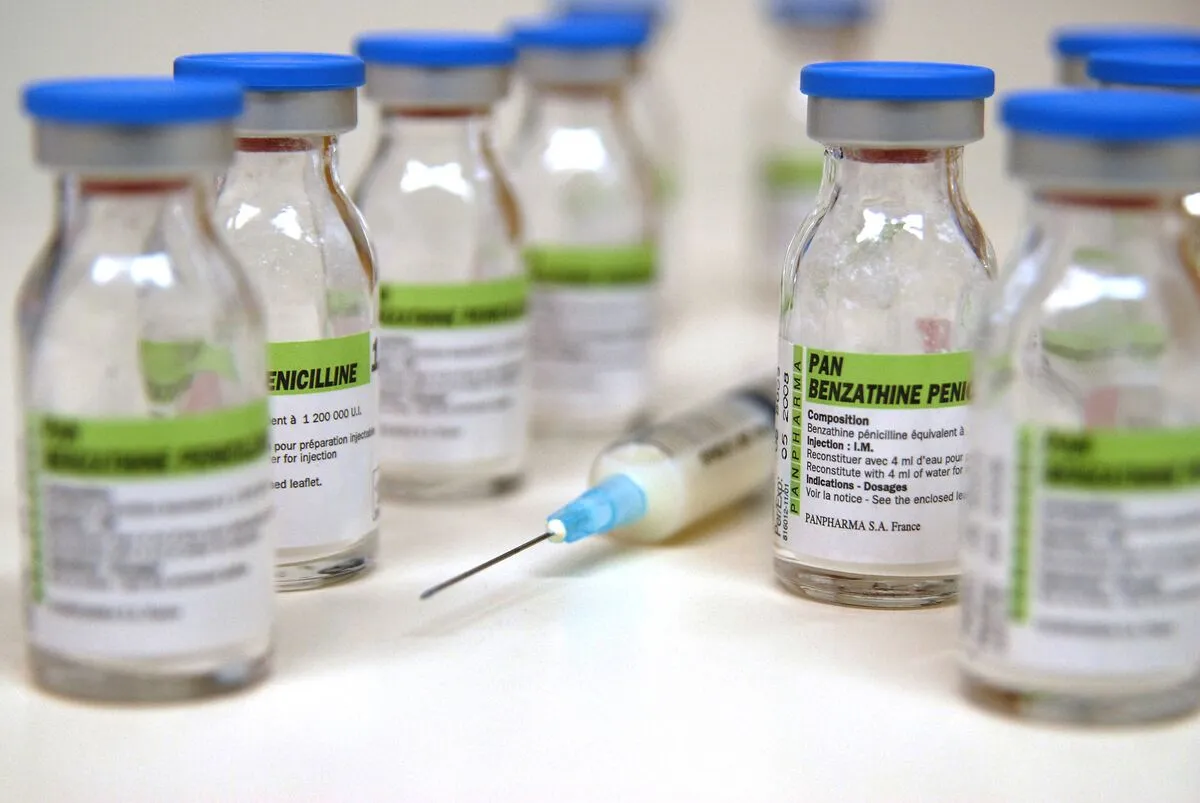Penicillin Shortage Poses Threat to Congenital Syphilis Treatment: Q&A
Pfizer faces penicillin shortage due to surge in syphilis infections.
The current shortage of penicillin products by Pfizer could potentially lead to a significant increase in cases of congenital syphilis. Pfizer recently announced that they are facing a limited supply and an impending stock out for two of their injectable penicillin products. This shortage is partly due to a surge in syphilis infections.
According to Pfizer, the supply interruption is a result of various factors, including a significant increase in demand caused by the rising rates of syphilis infections and competitive shortages. They estimate that Bicillin C-R will be depleted by the third quarter of 2023, while Bicillin L-A will likely run out by the end of the second quarter of this year.
The rates of congenital syphilis have been steadily increasing, and this shortage of penicillin products will have an impact on the treatment of this condition. We spoke with Dr. Kristina A. Bryant, a hospital epidemiologist at Norton Children's Hospital and a professor of pediatric infectious diseases at the University of Louisville, to understand the implications of this shortage.
When asked about the cause of the penicillin shortage and its expected duration, Dr. Bryant explained that Pfizer attributes it to increased demand for long-acting penicillin G benzathine due to the rising rates of syphilis infections and shortages of other drugs. For example, earlier this year, due to shortages of amoxicillin, some clinicians may have used LA-Bicillin to treat strep throat. Dr. Bryant expects the shortage to last at least until the second quarter of 2024.
The shortage is already causing concerns in the medical community. While supplies of LA-Bicillin are currently limited but not yet depleted in Dr. Bryant's community, there is a significant worry about the potential impact. It is important to note that penicillin G is the only recommended treatment for pregnant individuals with syphilis. If the shortage leads to a delay in treatment or the lack of treatment, there could be a rise in cases of congenital syphilis.
Untreated syphilis in pregnant individuals can have devastating consequences for infants. Up to 40% of infants born to pregnant individuals with untreated syphilis may be stillborn, experience early infant death, or suffer from serious complications such as deafness, blindness, and bone damage.
In terms of prioritizing treatment during a drug shortage, Dr. Bryant emphasizes the importance of preventing congenital syphilis and its complications. Public health experts recommend reserving LA-Bicillin for pregnant individuals infected with or exposed to syphilis, as well as for infants exposed to syphilis in utero.
In conclusion, the shortage of penicillin products by Pfizer is a cause for concern, as it could potentially lead to a further increase in cases of congenital syphilis. The rising rates of syphilis infections and competitive shortages have contributed to this supply interruption. It is crucial to prioritize the treatment of pregnant individuals and infants to prevent the devastating consequences of untreated syphilis. Efforts should be made to address this shortage and ensure that the necessary treatments are available to those who need them.











Comments on Penicillin Shortage Poses Threat to Congenital Syphilis Treatment: Q&A